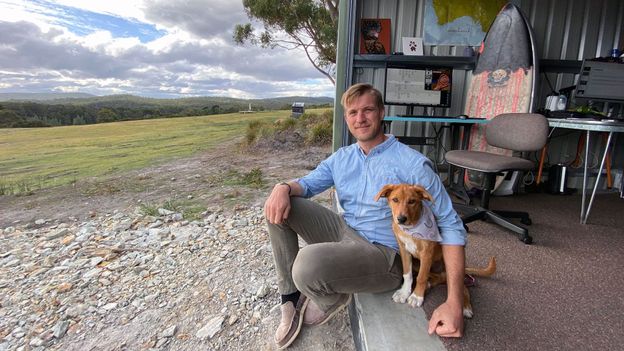Giving people due credit is one of the most effective ways of influencing them, without turning yourself into a villain. Don’t tell people what they did wrong – tell them what they did right. “That makes them want to do more of it,” says Hogshead.
This is not only solid management advice, but a classic way to endear yourself to people in almost any situation. If someone makes an intelligent point on a Zoom call – tell them there and then. If they have a great idea, say so. Recognise your colleagues for their preparedness, or even their ability to take feedback on board.
Hogshead emphasises the importance of avoiding ultra-common compliments, which won’t have much of an impact. “Acknowledge them in a way that is not so obvious that they hear it all the time,” she says. “My husband has gorgeous blue eyes, and people always people comment on it. He is flattered, but it doesn’t build a connection.”
Tell stories
Humans have been telling stories for tens of thousands of years; recently scientists discovered a 43,000-year-old cave painting depicting eight small human-like figures hunting two pigs, which is thought to be the earliest narrative ever found. They’re thought to have evolved as a way of bonding with others, transmitting information and making sense of the world around us.
Though we’ve moved from campfires to offices and now virtual workplaces, storytelling is still thought to be fundamental to the way our brains work. Psychologist Jerome Bruner believes that facts are up to 22 times more memorable when presented in story form – and in a world that’s increasingly saturated in information, the ability to craft a narrative is crucial for being heard.
And while storytelling won’t generate rapport on its own, journalists and advertising executives have known for decades that it’s the first step to capturing someone’s attention. Once they’re hooked, you can work on demonstrating how funny, clever or interesting you are.
“Sometimes when I do phone interviews with corporations that are sussing me out as a speaker,” says Boothman, “there’ll be like eight people on a conference call and they’ll say ‘how are you?’. I’ll say ‘Oh, I’m on my farm in Canada. Oh my gosh, look at the horses coming up from the valley into the paddock…’ And there you are, straight into their imaginations. They can see it.”
Boothman explains that an easy way to improve your storytelling is to throw in sensory information or make comparisons. “One of the best in the world at this is Warren Buffett,” he says. “When he described the last financial crisis, he said: ‘Only when the tide goes out do you discover who’s been swimming naked.’.” This was a reference to the banks that had borrowed money they couldn’t afford to pay back, expecting that no one would notice because the market would continue growing. It’s widely quoted to this day – and arguably it’s descriptions like this that add to Buffett’s legendary status, and explain why people will pay millions for a private lunch with him.
In a world where people are being made redundant over Zoom – and worse, email – and your next face-to-face meeting with your boss might not be until 2021, it can feel like we’re increasingly de-humanised, reduced to an email signature or a job title. But though many of the usual ways to bond with our colleagues are currently off-limits, Boothman and Hogshead agree that it’s eminently possible over Zoom – it’s just different.










